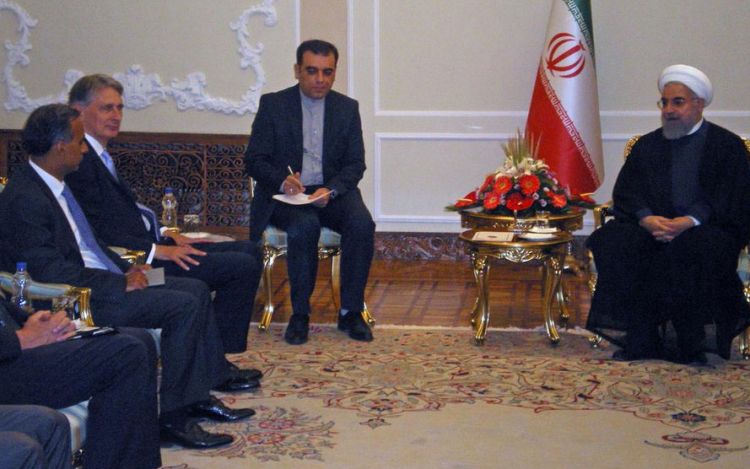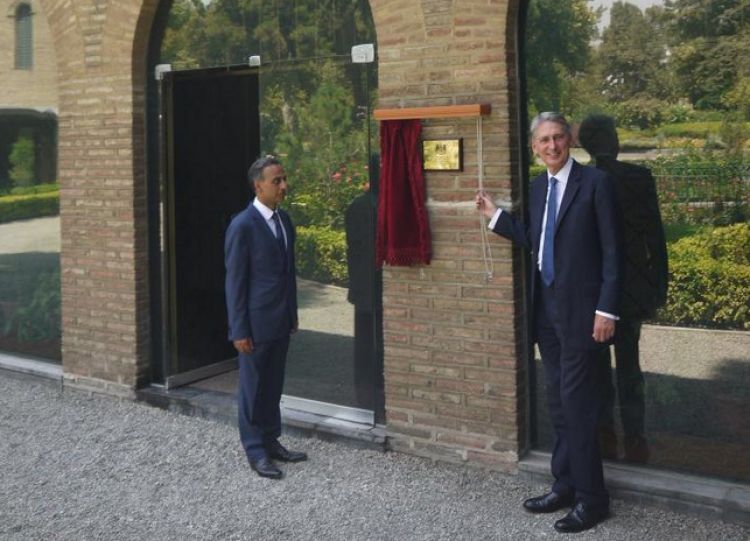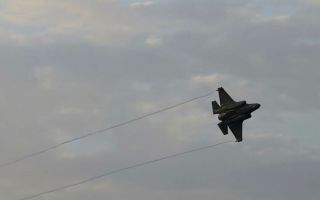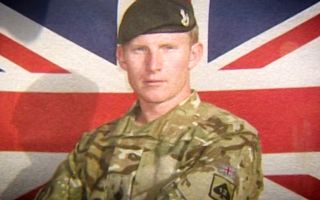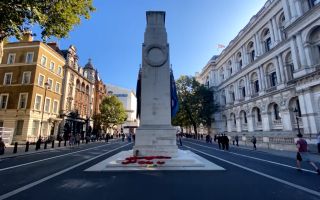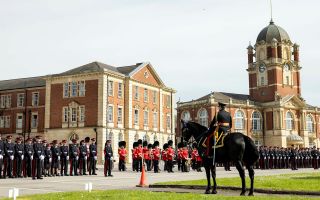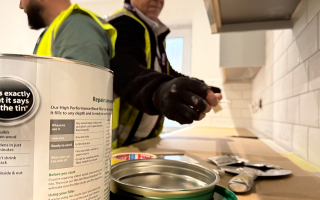Tri-Service
Comment: How To Open An Embassy
The website of the recently re-opened Iranian Embassy to London is, like the relationship between Iran and the UK, ‘under construction’.
Still, it could be worse. Parts of the British Embassy in Tehran are ‘under construction’, as in workers are having to clean the anti-British graffiti of the walls, and re-install new versions of the secure communication equipment diplomats destroyed before leaving in a hurry in 2011.
That followed the attack by a mob which stormed over the Embassy gates and trashed part of the compound, almost certainly with the approval, if not planning, of hardliners within the Islamic Republic. When things have got that bad, it’s extremely difficult to get back on terms cordial enough for a visit, such as we see this week, of the British Foreign Secretary Phillip Hammond - with both sides reopening their respective embassies.
The diplomatic groundwork can take years – in the case of the UK and Iran four years, and in the case of Cuba and the United States 54 years. Once the diplomacy has moved forward there are a thousand details the ‘sherpas’ need to carry up the mountain before the Foreign Ministers go in for the glory.
Until this week there had not been a visit to Iran by a British Foreign Secretary since 2003. Relations grew worse in the years leading to the 2011 attack, and it was 2013 before the two sides officially spoke to one another at a senior level. The then Foreign Secretary William Hague met his opposite number in New York at the UN General Assembly. Two months later non-resident Chargés d’affaires were appointed in November 2013.
The UK’s Chargé, Ajay Sharma, followed up making 12 visits to Tehran. Last June, with the President Rouhani having replaced President Ahmadinejad, Mr Hague announced the intention to open embassies once practical arrangements had been made. Then President Rouhani met PM David Cameron last autumn.
The British insist the’ practical arrangements’ are nothing to do with the recent deal on Iran’s nuclear programme, and remind us that relations were never fully severed. If that is to be believed then it is just co-incidence that an effort to improve relations was made in February when the two sides ended the practice of using the embassies of ‘Protecting powers’ (Sweden and Oman) to do business. It is also coincidental that the embassy openings come a month after the deal was agreed.
It is indeed the case that practical arrangements need to be made, but the idea that they are not connected to diplomacy is somewhat disingenuous.
The tortuous route to the Cuba/USA rapprochement threw up an example: In the spring, as negotiations were in full flow, a ‘Senior State Department Official’ said…”this is where we roll up our sleeves as diplomats and sit down at the table and make sure that we hammer all of the details out to get embassies up and running the way we have embassies all around the world.”
The Cubans needed to open a bank in the USA to fund an embassy. But Cuba was still on the USA’s list of countries which sponsor terrorism, which made opening a bank problematic. Havana insisted on being de-listed, Washington DC said this was a separate issue. One US diplomat said “It would be very easy to restore diplomatic relations if they would not link those two things… So that’s sort of a delay of their own making, frankly.”
Many of these details are based on the 1961 Vienna Convention on Diplomatic Relations, which deals with what appears to be minutiae but much of which in fact is very important. It is a grand document beginning with “Recalling that peoples of all nations from ancient times have recognised the status of diplomatic agents…” but quickly gets into legalese concerning such issues as agreeing on the ability of staff to move around a country, to get things in and out of the embassies, who they can and can’t meet, and what laws they are or are not immune from.
Most countries have signed all of the Convention, but many only after adding caveats, for example Kuwait inserted “If the State of Kuwait has reason to believe that the diplomatic pouch contains something which may not be sent by pouch under paragraph 4 of article 27 of the Convention, it considers that it has the right to request that the pouch be opened in the presence of the representative of the diplomatic mission [concerned].”
However, the UK and Iran have ironed out many of the differences between them. But standing in the way of even better relations? The £72,000 for central London parking tickets still unpaid by Tehran.
Tim Marshall was formerly the Foreign and Diplomatic Editor at Sky News. He now edits the international relations website www.thewhatandthewhy.com and can be found at @itwitius
His latest book 'Prisoners of Geography: Ten maps that tell you everything you need to know about global politics' can be bought here.
